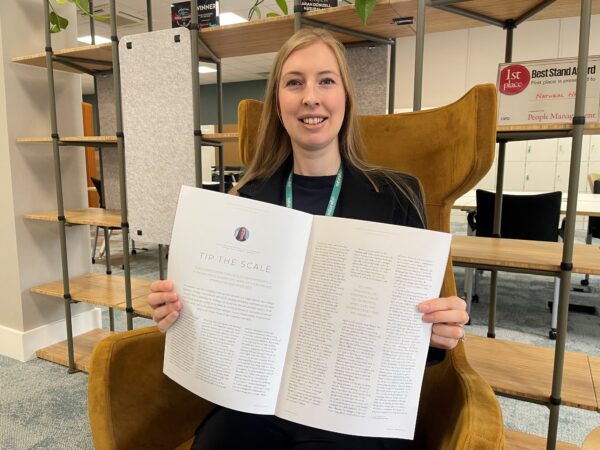Before the introduction of shared parental leave and pay in 2014/15, I attended several employment law updates to prepare for what felt like the topic of the year in the HR world amidst concerns of practicality for businesses.
Most of the headlines we’ve seen have covered the low uptake of shared parental leave. Over the last couple of years, the focus has shifted from burden and business costs to encouraging the uptake of shared parental leave (predominately targeting fathers, although the regulations cover same-sex parents). I am only aware of a couple of cases testing the regulations at the time of writing.
Going back to 2015, I blogged on Natural HR: Shared parental leave and unequal pay, highlighting that companies paying different rates for maternity pay and shared parental pay wouldn’t be considered discriminatory under the regulations themselves…at least until a test case came along. I provided the hypothetical example of a company offering enhanced maternity pay but only statutory shared parental pay. The result was a male employee feeling aggrieved that he would be taking shared parental leave at a lower rate of pay than a female colleague taking maternity leave. Well, we have recently seen this story come to life through the case of Ali v Capita Customer Management Ltd ET/1800990/2016.
Ali v Capita Customer Management Ltd
A father’s claim of direct sex discrimination has succeeded after his employer didn’t allow additional paternity leave at full pay. The employer offered shared parental leave at statutory pay while offering female employees an enhanced maternity pay policy.
Background to the case
Mr Ali’s wife was diagnosed with PND (postnatal depression) after giving birth, and so she was medically advised to return to work to help with her recovery. His employer told him that in taking Shared Parental Leave to care for his baby, he would be entitled to statutory shared pay during the leave period. Mr Ali claimed direct sex discrimination as his employer’s maternity policy allowed 14 weeks’ enhanced pay for his female colleagues.
Mr Ali argued that he had been treated less favourably by his employer than they would treat female colleagues and that outside of the two weeks compulsory maternity leave for women immediately after birth, male colleagues should be allowed 12 weeks’ full pay (in line with the 14 weeks’ female colleagues would receive while taking maternity leave). The tribunal ruled in favour of Mr Ali.
In upholding Mr Ali’s complaint, Employment Judge Rogerson said: “It was not clear why any exclusivity should apply beyond the two weeks after the birth. In 2016, men are being encouraged to play a greater role in caring for their babies. Whether that happens in practice is a matter of choice for the parents depending on their personal circumstances, but the choice made should be free of generalised assumptions that the mother is always best placed to undertake that role and should get the full pay because of that assumed exclusivity.”
The full judgement of the case was published on 2 June 2017 and is available on the gov.uk website here.
My thoughts on the case
The outcome of this case does seem fair, especially in a society striving for equality, as it must work both ways.
The featured image of this blog post was taken when I was on maternity leave with our first son in 2010. At that time, there was no choice of taking shared parental leave. While my husband did take two weeks of paternity leave, we would have seriously considered the option of him taking longer had it been an option and something we felt was financially viable.
Since the judgement was announced, I have seen two schools of thought from the employment lawyers following the case of Ali v Capita Customer Management Ltd.
The first and most apparent is for employers to “harmonise” the rate of pay for shared parental leave to match maternity leave.
But other lawyers are suggesting that employers should hold fire before making any policy changes, as the judgement isn’t binding, and it looks as though Capita will be taking this to an EAT to appeal the decision.





